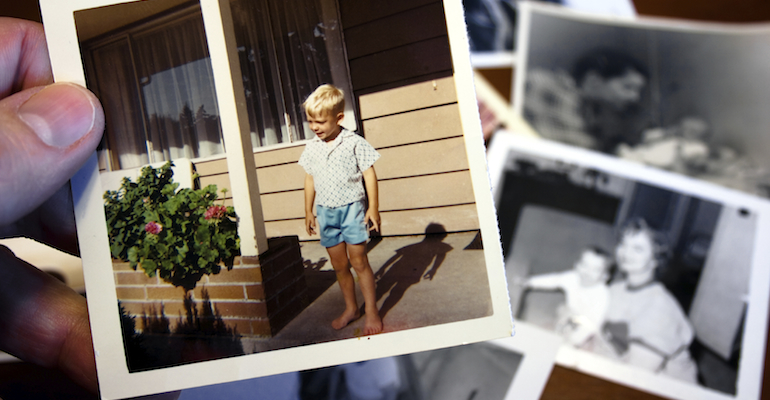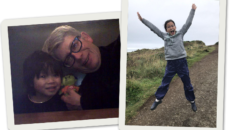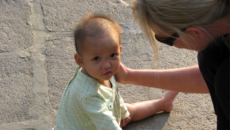You put a lot of effort into making memories for your family, but have you thought about how to keep the memories alive?
In our fast-paced world, telling the stories of our families usually take a back seat to other concerns. But by recording yours, you will give your children a gift that lasts a lifetime. If you have a video camera or tape recorder, turn it on while you do these activities, or appoint a family secretary to write them down.
A Map of Memories
Remembering places you liked to play is a great way to tap into your childhood memories. Draw a map of your favorite spot where you played. Think of a story that happened at that site and share it with your children.
Then have them ask other family members to do the same. Encourage your kids to keep a scrapbook of these play maps, along with their stories. Make sure they mark which family member belongs to each map.
The Imaginary Chest
We all have precious keepsakes from our childhoods. Even if the objects have disappeared, they exist in your mind. Share your keepsakes — or your memories of them — with your kids.
Drop an imaginary chest on the floor, filled with favorite objects from your childhood. “Take them out” one by one and describe them to your kids. Use as much detail as you can. Start with your favorite doll, describing her outfits and how it felt to hold her.
Reach in the box and find your mother’s pearls (or whatever item you coveted). Describe how your mom looked when she wore them. Kids love to use their imaginations. If you create a vivid picture, your child will have no trouble seeing it.
The Open Door Game
Pull out your keys. Choose one and tell an adventure or a funny story that happened inside the house, room, or car it opens. Perhaps you chose a key to the basement. You could describe hiding there when you played hide and seek as a child.
Or maybe a car key reminds you of a trip, or the first time you brought your child home. Have other family members do the exercise with their keys. Even the simplest stories and memories will fascinate your kids.
The Very First Time
Firsts are always memorable, and they can quickly tap into elder relatives’ stories. Ask them to describe their first airplane ride, trip away from home, fancy party, pet, house, teacher, job, date, or car.
Talk It Up
Have your child play the host of a talk show on which you are a guest. But instead of playing yourself, become a person from your past. Maybe you are the strict grammar school principal you feared. Or perhaps you become the friendly crossing guard or school bus driver, or the lady who gave out the best goodies on Halloween.
Have your child ask questions about your life. Involve other family members by putting them in the audience and having them ask you questions as well. You might reverse roles, with your child as a person from her past and you as the host.



